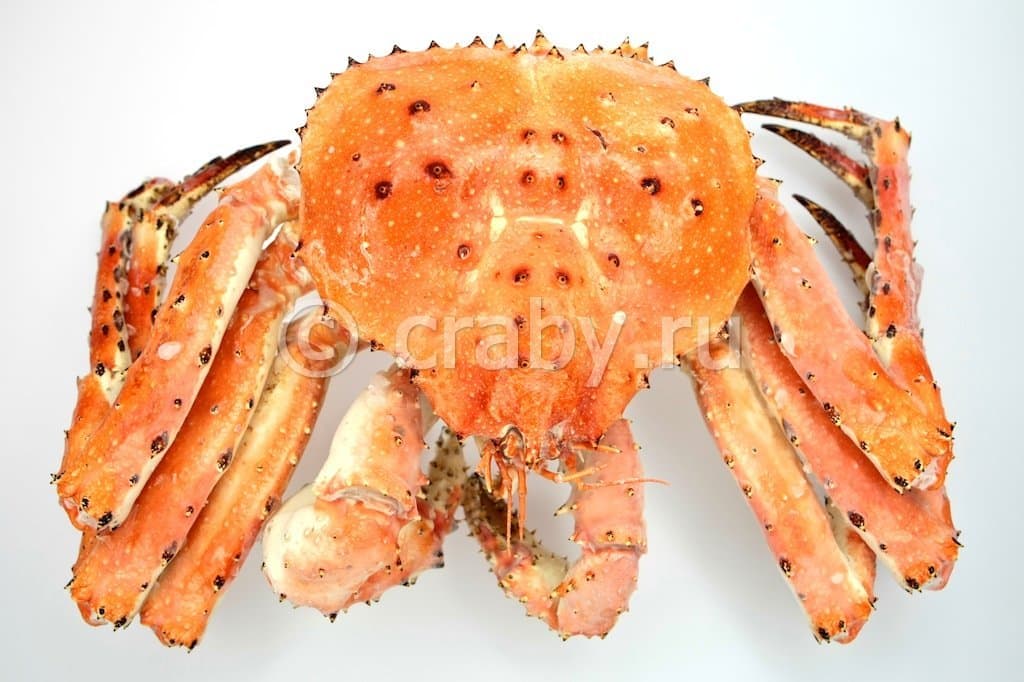
Cookedfrozen Blue King Crab
"Blue king crab are pretty rare in the Juneau area, and golden are typically much deeper," said biologist April Rebert. Rebert is also based in Douglas and is a research diver as well as a king crab manager. The Friendliest Catch. Biologists conduct annual surveys to determine if there are enough crab for a fishery. Over a nine-day period.

King Crab At Aquarium Ocean Dark Blue Bottom Stock video footage 8960591
The blue king crab is the largest king crab species and one of the largest crustaceans. In the past, this species supported a large fishery, worth millions of dollars, but numbers have been reduced to the point that commercial fishers no longer target the blue king crab directly. It lives on soft bottom habitats throughout the Bering Sea and.

AKCRRAB News Flash, January 2014 Alaska Sea Grant
Buy king crab online which can be served dressed or in the form of soups such as bisque or bouillabaisse, p"t', mousses and hot souffl'. The health benefits of crabs are numerous. Crabs have a high content of proteins, vitamins and amino acids. Also rich in essential minerals, crab meat is low in fat and carbohydrates.
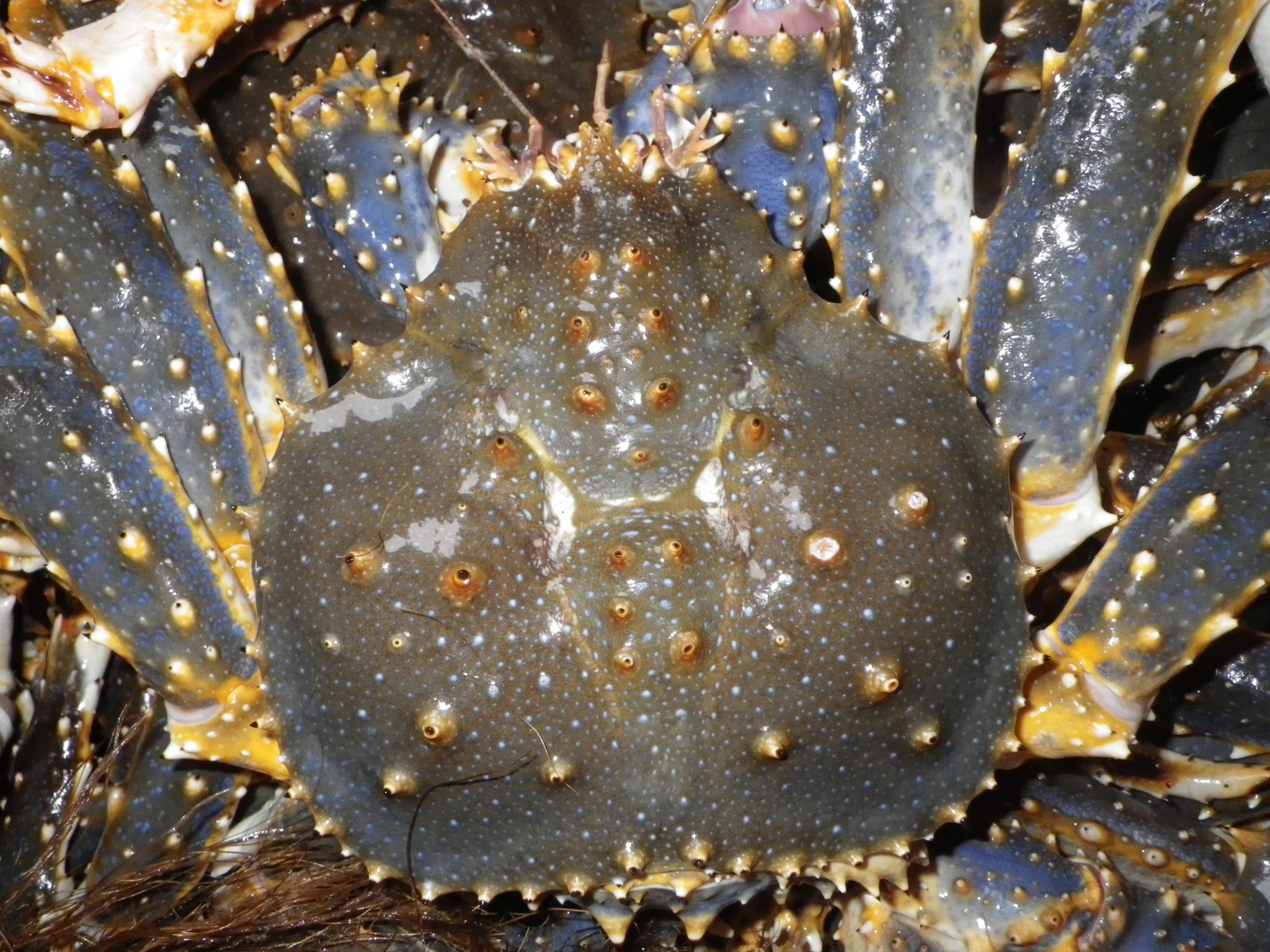
Low harvest goal set in Southeast's limited golden king crab commercial fishery KFSK
King crab, (Paralithodes camtschaticus), marine crustacean of the order Decapoda, class Malacostraca. This edible crab is found in the shallow waters off Japan, along the coast of Alaska, and in the Bering Sea. The king crab is one of the largest crabs, weighing 5 kg (11 pounds) or more. Its size

Average King Crab Weight IsabelewaGilmore
Crab varieties King Crab) Rock crab tongs (Stone Crab) China manufacturer) Common crab Spider crab Blue crab Soft crab Atlantic red crab Alaskan bairdi crab How to Prepare Crab. Crab is often sold cooked and then frozen, a method that helps to better preserve quality. Since it is already cooked, it is necessary to be careful not to overcook it.

King Crab At Aquarium Ocean Dark Blue Bottom Stock video footage 8960593
2020 Alaska Crab Stock Assessment And Fishery Evaluation Report. This Fisheries Management Plan includes all species and fisheries for Alaska crab (red, blue, and brown king crab, Tanner crab, and snow crab). In-season management of these fisheries is provided by Alaska Department of Fish and Game in Kodiak. March 08, 2022 - Assessments ,

Blue King Crab Facts & Information Guide American Oceans
Offering a buttery taste and a savory finish, blue king crab is a delightful catch. Prepare it as you would other king crabs to enhance the natural flavor and keep seasoning to a minimum. Clean and pure is always best. Blue Alaskan king crab live in deeper and colder conditions than red king crabs. Fishers use traps to catch blue king crab.
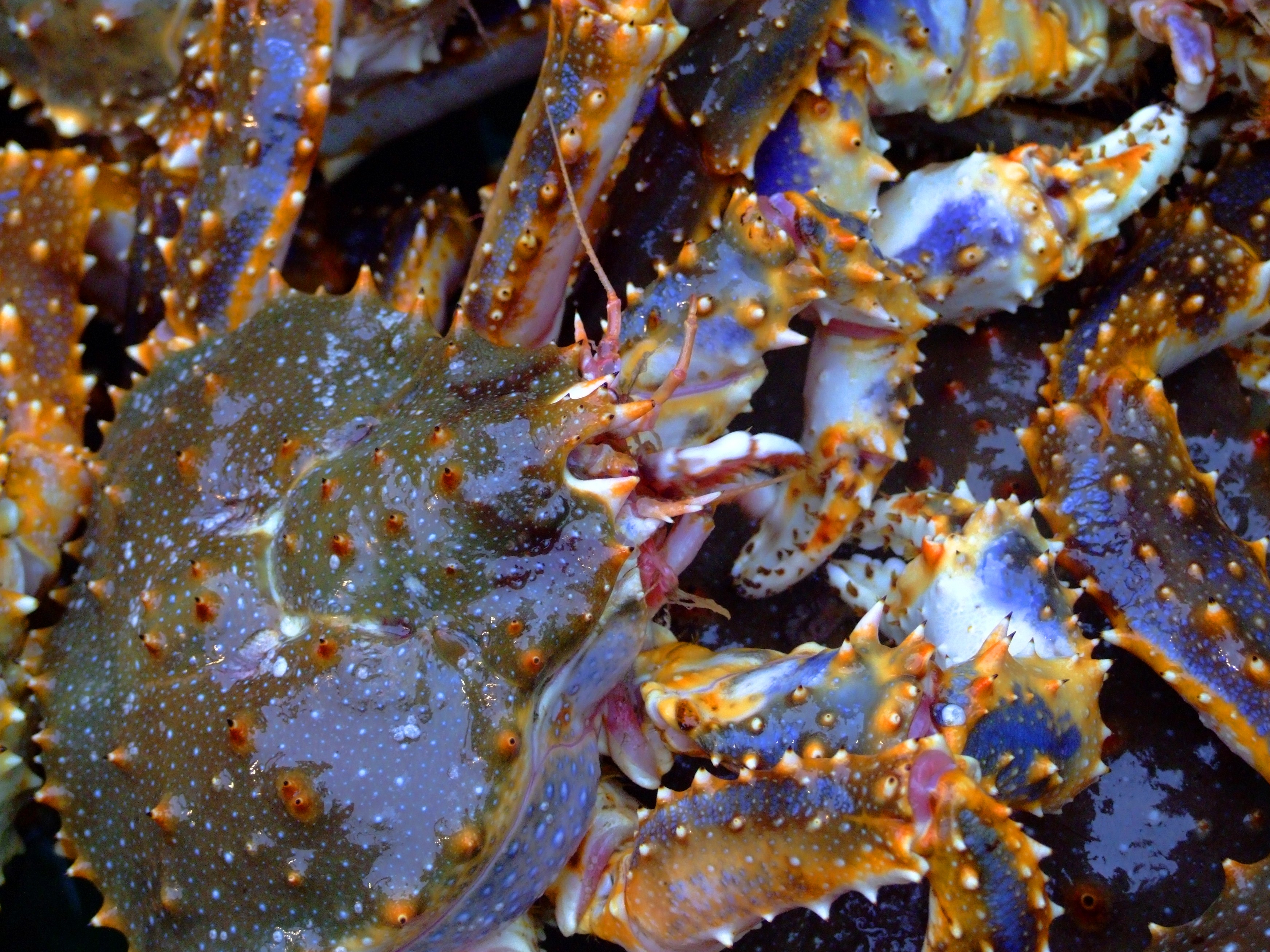
Researchers aim to protect the Bering Sea's rare blue king crab while preserving fisheries
Blue king crabs typically live between 3-4 years. They reach maturity at a 18 months. Approximately fifty percent of blue king crab reach maturity upon reaching 5 inches. However, female St. Matthew Island and Diomede crabs achieve this milestone at a smaller size - just 3 inches!

AKCRRAB News Flash, April 2014 Alaska Sea Grant
Small golden crab legs may come in bundles of up to 24 pieces. If the crab legs are not labeled 'red, blue, or golden', there are a few ways you can tell what you're getting. Red king crab legs tend to be solid red and are thin and long. On the other hand, blue crab legs will be more of a reddish-orange color and the shape of the legs.

Blue King Crab Facts & Information Guide American Oceans
4 Summary Three species of king crab are found in Alaskan waters: red king crab (Paralithodes camtschaticus), golden (brown) king crab (Lithodes aequispinus), and blue king crab (Paralithodes platypus).). King crab stocks in the U.S. have had a history of moderate susceptibility and vulnerability to fishing pressure.

Blue King Crab Facts & Information Guide American Oceans
Golden King Crab is an economical option for consumers looking for gourmet Alaskan king crab. The mild-tasting meat of the Golden King Crab is pure white in the center with red highlights along the outside. Male golden king crabs are primarily harvested around the Aleutian Islands and average 4 - 7 lbs. Alaskan red king crab (cooked)
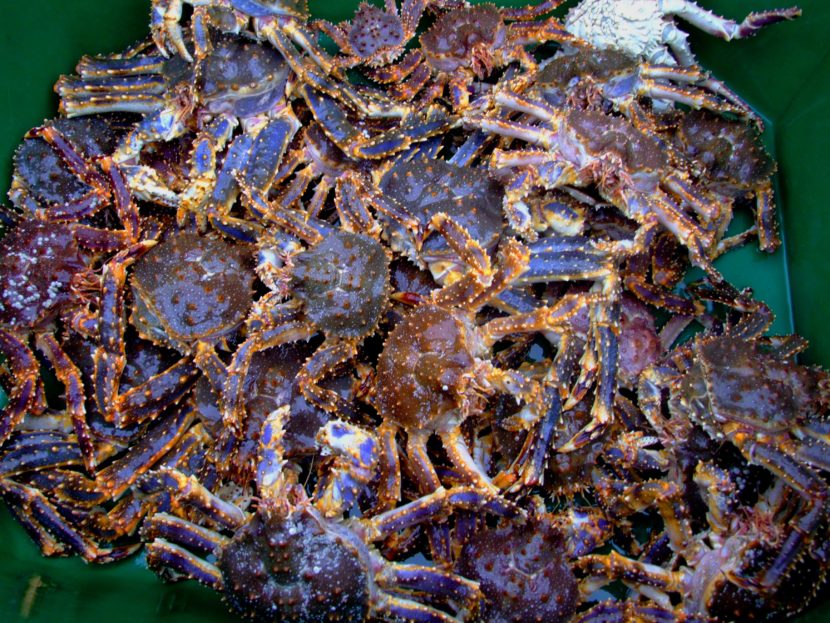
Pribilof scientists work to bring back decimated blue king crab population Alaska Public Media
The blue king crab is a decapod - it has ten legs. Its spiny exoskeleton and carapace, or shell, help protect it from predators. The blue king crab must shed the shell regularly while the crab is growing. Its exoskeleton does not expand, so it must molt off the crab as the crab grows, revealing a new shell underneath.

Live Blue King Crab Blue King crab for sale
The blue king crab, Paralithodes platypus, lives near St. Matthew Island, the Pribilof Islands, and the Diomede Islands, Alaska, and there are populations along the coasts of Japan and Russia. Blue king crabs from the Pribilof Islands are the largest of all the king crabs, sometimes exceeding 18 lb (8 kg ) in weight.
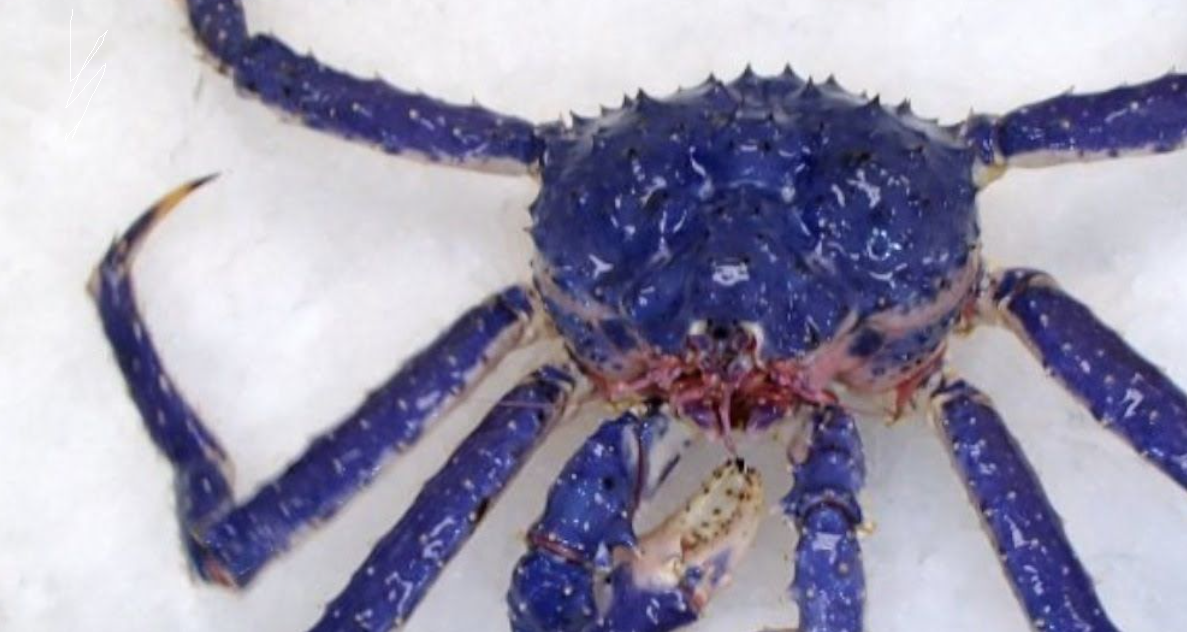
Everything You Need to Know About Blue Alaskan King Crab
The blue crab is a highly sought-after shellfish. Blue crabs live up and down the Atlantic Coast and in the Gulf of Mexico and are caught by both commercial and recreational fishermen. Its scientific name— Callinectes sapidus —translated from Latin means 'beautiful savory swimmer.'. Blue crabs are the most valuable fishery in the Chesapeake.

AKCRRAB News Flash, December 2013 Alaska Sea Grant
Golden King Crab. Caught in the waters around the Aleutian chain islands, golden king crab are the smallest of the three main species. Their shells are golden-orange in color. They have the mildest flavor of the Alaska's three commercially-harvested types of king crab. Golden king crab generally have the lowest percentage of meat "infill.

THE GIANT BLUE CRAB! King of Crabs Ep4 YouTube
There are three kinds of king crab; red, blue and golden. Nutrition Protein. 16g . Omega 3. 351mg. Vitamin B-12. 9.8mcg (408% DV). Red king crab is historically the most commercially valuable shellfish in Alaska, roughly 854 million pounds, worth $2.5 billion* has been harvested since 1975. *Not adjusted for inflation